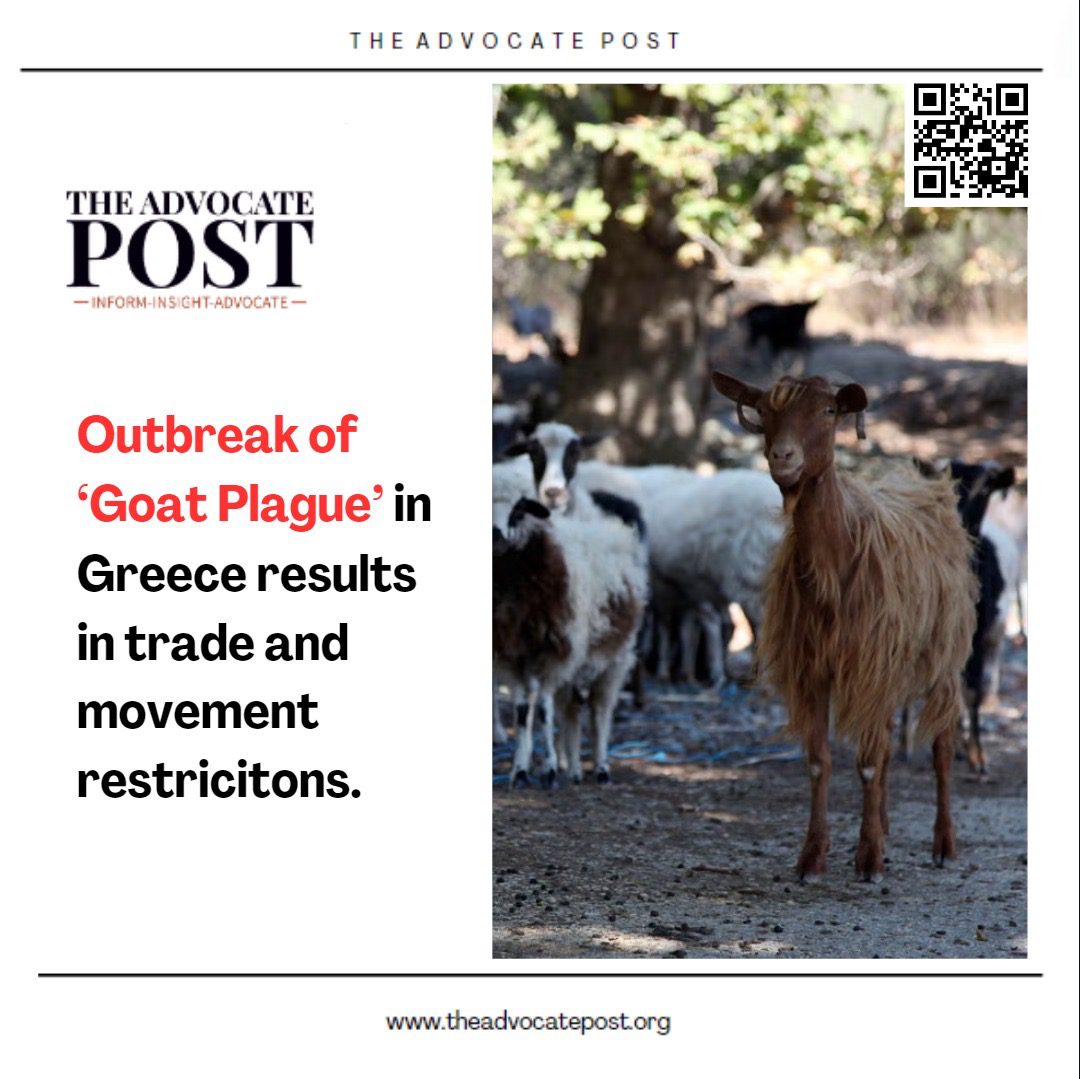News Desk
The Advocate Post: Greece has halted all transportation of goat and sheep in the country in an effort to contain a deadly contagious disease known as the ‘goat plague’. Universally all movements of goat and sheep have been banned in Greece, according to its ministry of agriculture. There were reports of recent cases of the infection in Larissa region in Corinth in the south. Also called the Pestedes Petits Ruminants (PPR), the virus has a death rate of 80-100%. However, it does not affect humans.
A statement on Monday revealed that the Ministry’s decision for the ban had been to limit the spread and eradicate the disease. Livestock farmers, cheesemakers, slaughterhouse owners and various feed suppliers had all been notified of the new restrictions.
On top of urgent meetings by ministry officials with local authorities about newly detected cases, they said an investigation was underway to determine the source of the outbreak. Greece is also liaising with the EU and veterinary services of the bloc and its member states.
Following EU regulations on the virus, at least 7,000 animals have already been culled in Greece since the beginning of the outbreak on 11 July. Greece, having the highest number of goats in Europe, is iconic for its use of goat and sheep milk to make Feta cheese. PPR’s first record was in Ivory Coast in 1942, and has spread globally since.





